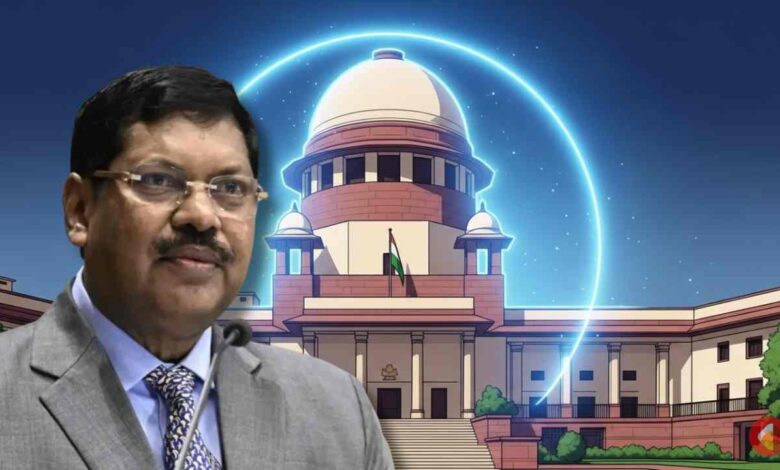CJI BR Gavai: Chief Justice of India Expresses Concern Over the Nation’s Judiciary

CJI BR Gavai: The Chief Justice of the Supreme Court, B.R. Gavai, has expressed deep concern over the current state of the country’s judicial system. He stated that the Indian legal framework is facing a significant challenge and is in immediate need of reform. The decades-long delays in delivering justice are increasing the harassment of ordinary people and eroding their trust in the law. Through these remarks, he has highlighted the shortcomings of the judicial system and emphasized the need for swift solutions.
The Core Problem of the Judicial System
According to Chief Justice Gavai, the biggest problem in the Indian judicial system is its chronic delays. It takes years, and sometimes even decades, to resolve a single case. As a result, litigants are deprived of justice, and public confidence in the country’s judicial system diminishes. He considers this situation a dire warning for the nation’s democracy.
Which Pillar is Supreme?
The debate over which of the three pillars of democracy—the legislature, the executive, and the judiciary—is superior is long-standing. In this context, the Chief Justice clarified his position, stating that no single pillar is supreme. In his view, the Constitution of the country holds the highest position. The Constitution guides these three pillars and is the source of their power. All departments must operate under the authority of the Constitution.
Necessary Reforms and Transparency
Justice Gavai has placed special emphasis on reforming the judicial system. He believes several changes are essential to make the judicial process faster and more transparent. He mentioned that efforts are underway to bring more transparency to the appointment process in the country’s highest court. This will ensure that qualified individuals are appointed as judges, leading to an improvement in the quality of the judicial system.
- Speedy Justice: The use of new methods and technology is necessary to reduce the time it takes to dispose of cases.
- Transparent Appointments: Greater transparency in the judicial appointment process is essential to eliminate any scope for nepotism or corruption.
- Public Trust: Delivering swift and accurate justice is imperative to restore people’s faith in the judicial system.
The Chief Justice’s statement paints a realistic picture of the current condition of the country’s judicial system. It now remains to be seen what steps will be taken in the future to address these issues. There is no doubt that if the judicial system does not improve, the country’s democracy will also be weakened.

